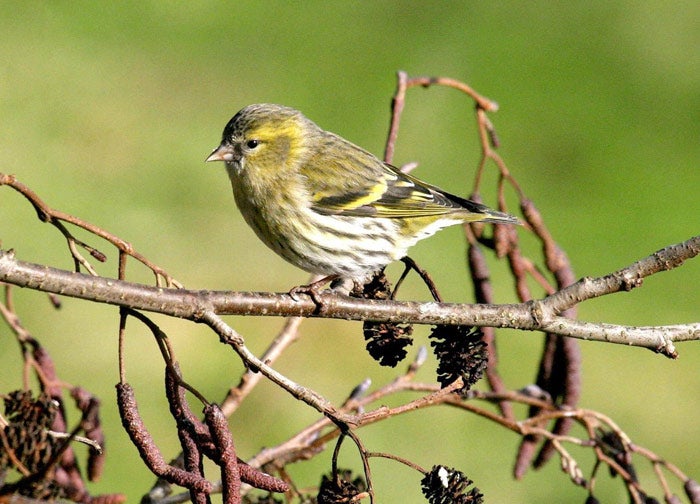Sharp decline in sightings of garden birds

Your support helps us to tell the story
From reproductive rights to climate change to Big Tech, The Independent is on the ground when the story is developing. Whether it's investigating the financials of Elon Musk's pro-Trump PAC or producing our latest documentary, 'The A Word', which shines a light on the American women fighting for reproductive rights, we know how important it is to parse out the facts from the messaging.
At such a critical moment in US history, we need reporters on the ground. Your donation allows us to keep sending journalists to speak to both sides of the story.
The Independent is trusted by Americans across the entire political spectrum. And unlike many other quality news outlets, we choose not to lock Americans out of our reporting and analysis with paywalls. We believe quality journalism should be available to everyone, paid for by those who can afford it.
Your support makes all the difference.The number of birds seen in British gardens has fallen sharply during the past four years as a result of warmer winters and a long-term decline in their populations, according to a survey published today.
Although numbers of a few species are rising in British gardens because of a shortage of food in the wider countryside, the overall number of birds in gardens has fallen by a fifth since 2004, according to the annual Royal Society for the Protection of Birds' (RSPB) Big Garden Birdwatch.
Records from the survey, in which almost 400,000 people spent one hour counting more than six million birds in their gardens or local parks this January, also reveal signs of long-term decline in bird numbers, with a dramatic drop in sightings of common bird species such as the house sparrow and starling since the survey started 29 years ago.
An average of 28.4 birds per garden were seen this year, compared with 34.8 birds per garden in 2004. House sparrow numbers have dropped by 64 per cent since the first Birdwatch in 1979, although they remain the most frequently seen bird, but the numbers of starlings seen in British gardens has plummeted by 77 per cent in the same period.
Numbers of wood pigeons and collared doves, however, have risen, respectively, by 665 per cent and 411 per cent since the survey began. And during the past year, finches have thrived more than most bird families, with RSPB members reporting the highest number of sightings of finches in their gardens for five years. The common redpoll has been seen in twice as many gardens as last year, while the brambling – a bird related to the chaffinch – has also been recorded in much higher numbers.
Numbers of the yellow and black siskin have also increased by almost two-thirds since 2004 with the small but striking finch seen in three times as many gardens as last year. Large numbers have been driven to the UK from Scandinavia where conifer seed crops – their main source of food – have been poor this year.
"It's definitely been a good winter for finches. Many of them are here because of food supplies," said Dr Andre Farrar of the RSPB. "The numbers of siskins and redpolls seen in gardens have sky-rocketed. Both birds feed on conifers and deciduous seeds, so the figures suggest that tree seed supplies have been poor this year and they've been forced into gardens to find food," he added.
The changing climate is driving much of the fluctuation in numbers, said Dr Farrar. "These are very profound changes. For the foreseeable future, we're in a period when we've got much milder winters." Warmer winters mean the survey, held on 26 to 27 January, was in effect a "spring" event rather than a "winter" one, Dr Farrar added.
Join our commenting forum
Join thought-provoking conversations, follow other Independent readers and see their replies
Comments